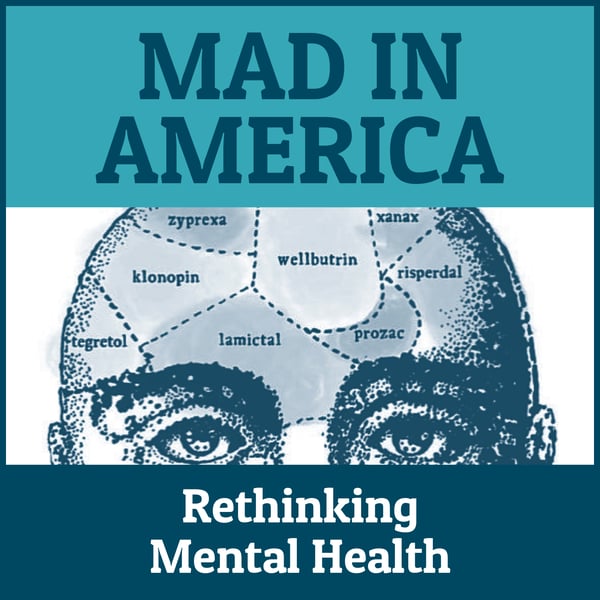Deprescribing Psychiatric Drugs to Reduce Harms and Empower Patients - Swapnil Gupta
Mad in America: Rethinking Mental Health
Mad in America
4.8 • 201 Ratings
🗓️ 6 March 2024
⏱️ 38 minutes
🧾️ Download transcript
Summary
Swapnil Gupta is an Associate Professor and Medical Director of Ambulatory Psychiatry at Mount Sinai Morningside Hospital. She was trained as a psychiatrist in India and the United States, at SUNY Downstate Medical Center and Yale University, and PGI Chandigarh in India. She is known for her work on deprescribing from and discontinuation of psychiatric drugs.
Dr. Gupta’s career began with research on the role of the endocannabinoid system in the pathophysiology of schizophrenia as an academic psychiatrist. Her subsequent scholarship has focused on applying deprescribing, the systematic reduction of unnecessary medications, to psychiatry by rooting it in the principles of recovery-oriented care. She has authored several peer-reviewed papers on deprescribing and co-authored a book with Rebecca Miller and John Cahill.
She is an active member of two organizations that aim to enhance stakeholder engagement in psychiatric research. She is also a part of the editorial board of the Community Mental Health Journal. Currently, she is working on creating educational resources to help people discontinue psychiatric medications and gathering information on the knowledge and opinions of psychiatrists regarding the discontinuation of such drugs.
In this interview, we discuss deprescribing from psychiatric drugs, the difficult decisions faced by patients, the importance of psychosocial support during withdrawal, and how deprescribing is central to recovery-oriented practices such as shared decision and patient choice. We will also tackle the complex issue of whether the recurrence of symptoms once a drug is tapered is a mark of relapse or withdrawal caused by the psychiatric medication.
***
Thank you for being with us to listen to the podcast and read our articles this year. MIA is funded entirely by reader donations. If you value MIA, please help us continue to survive and grow.
To find the Mad in America podcast on your preferred podcast player, click here
Transcript
Click on a timestamp to play from that location
| 0:00.0 | Welcome to the Madden America podcast, your source for science, psychiatry and social justice. |
| 0:14.4 | Hello everyone and welcome to Mad in America. This is Ayur Dhyr, your host for today's spotlight interview. |
| 0:22.5 | At MIA, we just reported on a study published in BMJ, which found that two out of three people do not find |
| 0:27.8 | antidepressants worthwhile, given their current adverse effects. The authors found that the burdens |
| 0:33.6 | outweighed the benefits for two out of three people. |
| 0:42.6 | I guess for today is Dr. Swapnel Gupta, whose work explores similar themes. |
| 0:48.6 | Dr. Gupta is an associate professor and medical director of ambulatory psychiatry at Mount Sinai. She did her medical training in India and residency in the U.S. at Yale and |
| 0:53.9 | Sunni. |
| 0:55.3 | Dr. Gupta has written extensively about deprescribing from and discontinuation of |
| 1:01.0 | psychiatric drugs. |
| 1:02.5 | We will talk about what that means, how it is achieved, and the complications that patients, |
| 1:08.1 | their families and psychiatrists often face if they choose to stop or reduce |
| 1:12.8 | psychiatric medication. We will get into the importance of patient choice, recovery, the debate around |
| 1:18.8 | relapse, which is far more complex than I have imagined it, and more. Dr. Gupta, welcome to |
| 1:24.7 | Mad in America. Thank you, Iurte. So let's jump in. |
| 1:28.6 | Let's start with a very basic thing. |
| 1:30.9 | What is deprescribing in psychiatry? |
| 1:34.0 | Deprescribing was originally defined in geriatric medicine and palliative care medicine. |
| 1:39.8 | As you might imagine, the older that people get, more and more diagnoses get added to their medical records, |
| 1:50.1 | and with more diagnoses come more medications. |
| 1:53.4 | Jiratic medicine introduced deprescribing as a way of removing medications whose benefits really did not outweigh the risks, either at the |
| 2:06.3 | current time or at the future time, and either reducing the dose of these medications or |
... |
Please login to see the full transcript.
Disclaimer: The podcast and artwork embedded on this page are from Mad in America, and are the property of its owner and not affiliated with or endorsed by Tapesearch.
Generated transcripts are the property of Mad in America and are distributed freely under the Fair Use doctrine. Transcripts generated by Tapesearch are not guaranteed to be accurate.
Copyright © Tapesearch 2025.

